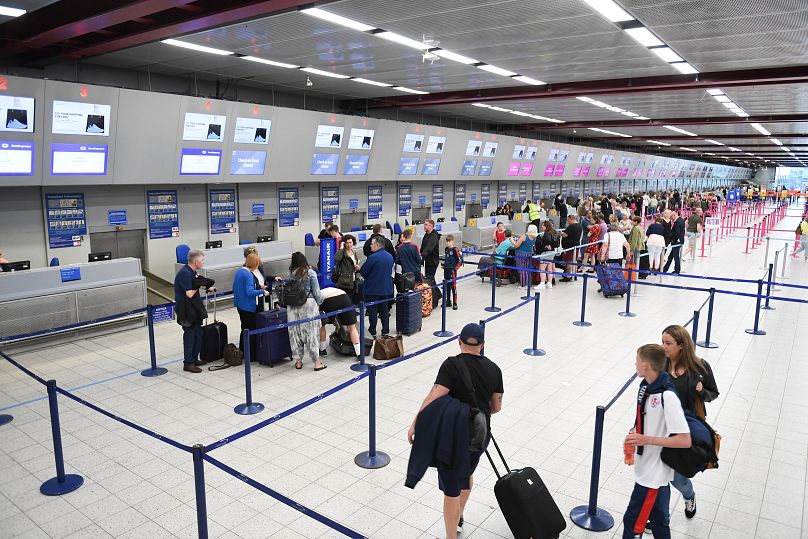Could the airline association’s digital passport bring about safe international travel? We tell you everything you need to know about the new app.
The world’s biggest airline association has developed an app that will mean you can have testing, vaccine and policy information all in one place. It is currently in trial stages but could provide a route to a less complicated route to travel as the world comes back from COVID-19.
 ADVERTISEMENT
ADVERTISEMENT
 ADVERTISEMENT
ADVERTISEMENT
Lots of big airlines have signed up to trial the digital programme created by International Air Transport Association (IATA) that will act as a “vaccine passport” of sorts.
IATA represents 290 airlines, that’s 82 per cent of global air traffic, and has a big influence over international travel protocols.
But what is the IATA travel pass? Which countries and airlines are using it? And how can it help you if you’re looking to go abroad this year?
What will the IATA travel pass do?
IATA believe that existing COVID-related travel procedures leave passengers confused. They want to combine testing, vaccine, and policy information in one mobile phone application that is accessible to travellers and airlines.
The app claims to do the following:
- Allow passengers to create a “digital passport” where they can check that their test and vaccination will allow them entry to their destination.
- Allow passengers to get tested easily at home and abroad.
- It can be used by travellers to have their travel documents stored digitally
Which airlines have opted in to the pass?
Twenty airlines have currently said they intend to trial the pass. This includes industry leaders such Emirates, Virgin Atlantic, and Qantas.
A full list can be found here.
When did it launch?
On 17 March the first successful journey was made using the IATA pass. They flew from Singapore to London’s Heathrow Airport with Singapore Airlines.
This led to Singapore approving use of the pass for all future arrivals.
IATA’s CEO Alexandre de Juniac commented that the success proved “that technology can securely, conveniently and efficiently help travelers and governments to manage travel health credentials”.
“The significance of this to re-starting international aviation cannot be overstated”.
Do I need one to fly?
The pass is not yet operational but expect to see more airlines making plans to use it this summer as trials continue.
IATA have confirmed they are not mandating any specific vaccination requirements to use their app - the only requisite is that you are following the rules of your home and destination countries.
For now, you should follow the guidance given by your destination country.
How do I get an IATA travel pass?
IATA have revealed the pass will be available via mobile app. No definitive launch date has been set but users can expect to to download and it like they would with any other travel app.
A working group has been formed to address the concerns of families with older and younger members that don’t own a smartphone.
What does this mean for travellers?
This could mean that passengers won’t be able to travel without digital documentation that they have either been vaccinated or tested negative for COVID-19.
Passengers will still be expected to follow each country’s travel regulations but could be sourcing their information from a single source, reducing people's planning stresses and keeping things simple.
What does it need to work?
The IATA travel pass will only run successfully if airlines, travellers, and governments are in agreement about its purposes and outcomes. They plan to meet in October, when de Juniac hopes “borders will be sufficiently open to gather”.
Watch this space for further updates.











